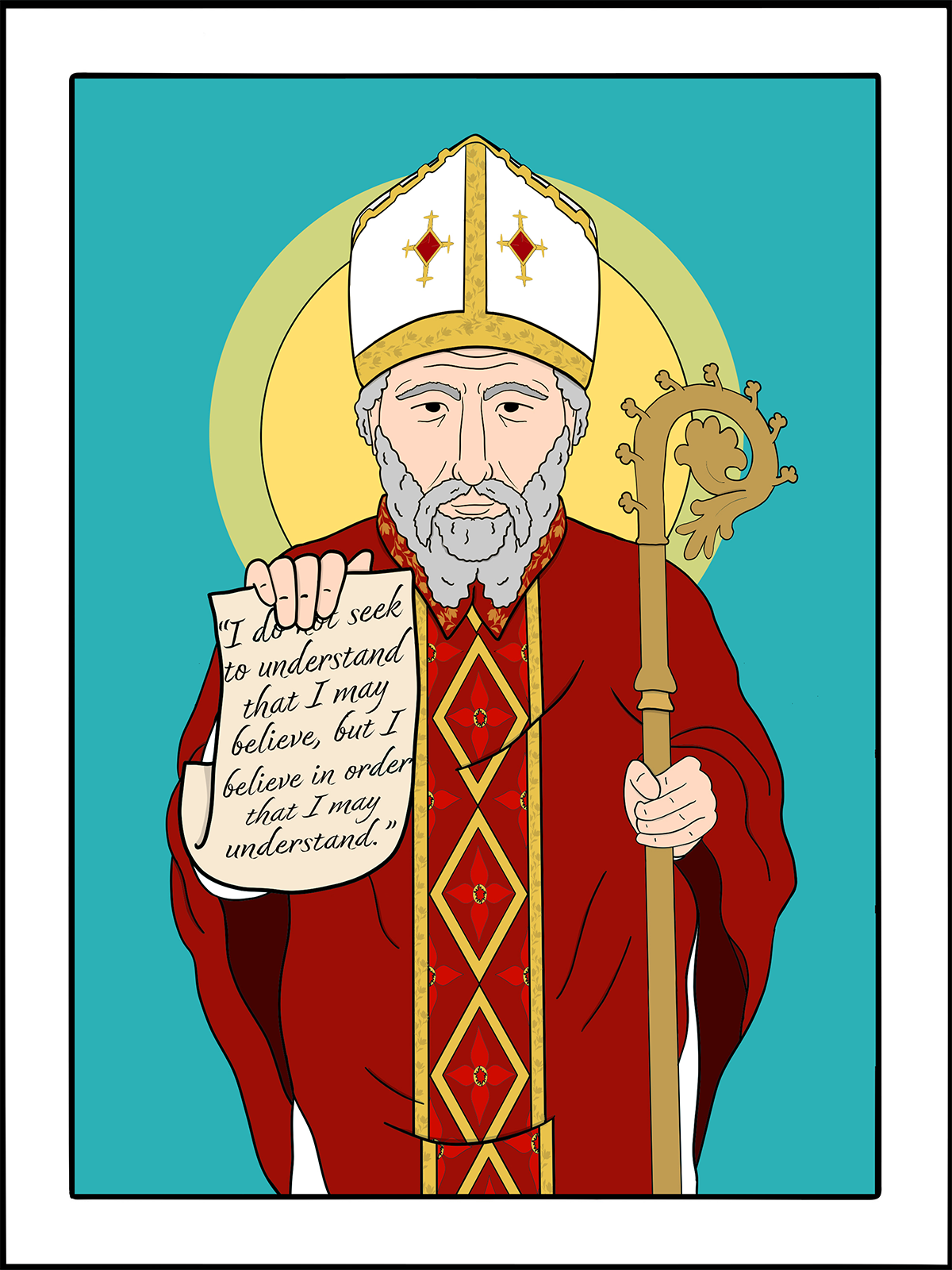
April 21
Anselm
Archbishop of Canterbury and Theologian, 1109
art by Rev. Kirsten Kohr of Uhrichsville, Ohio Almighty God, whose servant Anselm helped your church to understand its faith in your eternal Being, perfect justice, and saving mercy: Provide your church in all ages with devout and learned scholars and teachers, that we may be able to give a reason for the hope that is in us; through Jesus Christ our Lord, who lives and reigns with you and the Holy Spirit, one God, for ever and ever. Amen.
Anselm was born in Italy about 1033 and took monastic vows in 1060 at the Abbey of Bec in Normandy. He succeeded his teacher Lanfranc as Prior of Bec in 1063, and as Archbishop of Canterbury in 1093. His episcopate was stormy, in continual conflict with the crown over the rights and freedom of the church. His greatest talent lay in theology and spiritual direction.
As a pioneer in the scholastic method, Anselm remains the great exponent of the so-called “ontological argument” for the existence of God: God is “that than which nothing greater can be thought.” Even the fool, who (in Psalm 14) says in his heart “There is no God,” must have an idea of God in his mind, the concept of an unconditional being (ontos) than which nothing greater can be conceived; otherwise he would not be able to speak of “God” at all. And so this something, “God,” must exist outside the mind as well; because, if he did not, he would not in fact be that than which nothing greater can be thought. Since the greatest thing that can be thought must have existence as one of its properties, Anselm asserts, “God” can be said to exist in reality as well as in the intellect, but is not dependent upon the material world for verification. To some, this “ontological argument” has seemed mere deductive rationalism; to others, it has the merit of showing that faith in God need not be contrary to human reason.
Anselm is also the most famous exponent of the “satisfaction theory” of the atonement. Anselm explains the work of Christ in terms of the feudal society of his day. If a vassal breaks his bond, he has to atone for this to his lord; likewise, sin violates a person’s bond with God, the supreme Lord, and atonement or satisfaction must be made. Of ourselves, we are unable to make such atonement, because God is perfect and we are not. Therefore, God himself has saved us, becoming perfect man in Christ, so that a perfect life could be offered in satisfaction for sin.
Undergirding Anselm’s theology is a profound piety. His spirituality is best summarized in the phrase, “faith seeking understanding.” He writes, “I do not seek to understand that I may believe, but I believe in order that I may understand. For this, too, I believe, that unless I first believe, I shall not understand.”
Excerpted directly from “Lesser Feasts and Fasts 2022,” p. 200-201.
Lessons and PsalmRomans 5:1-11
Psalm 139:1-9
Matthew 11:25-30
Preface of the Epiphany

